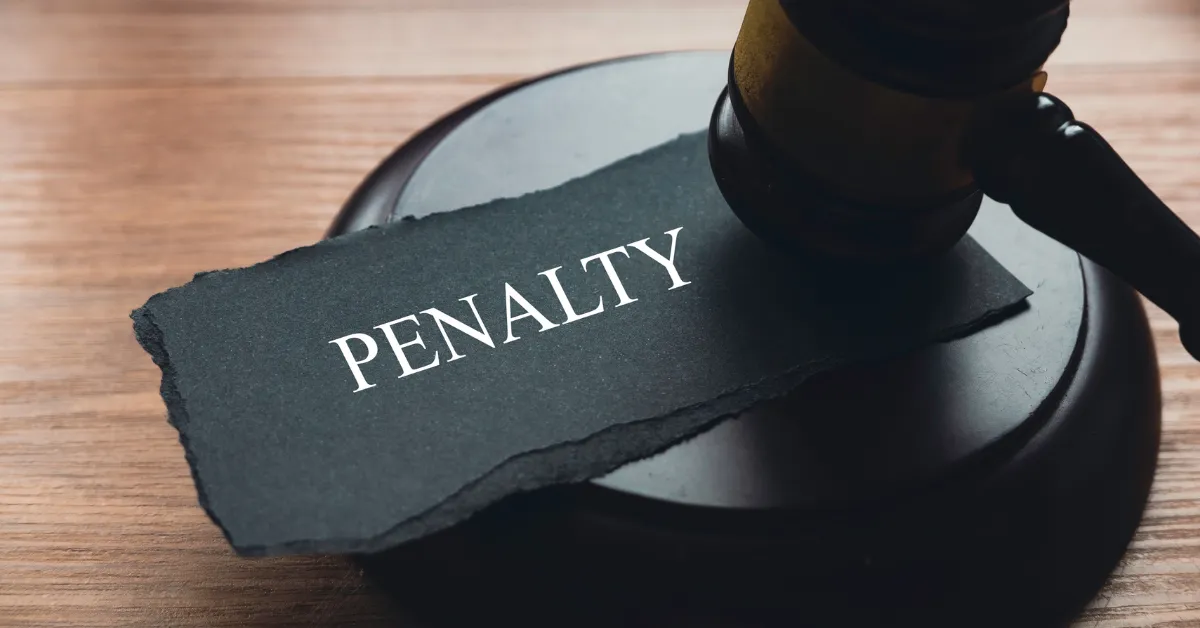Our Blogs
Home > Blog

What Is Penalty Abatement And How Do I Get One?
Tax filing season - those harmless looking envelopes with creases crisp enough to induce paper cuts. They typically contain well-meaning but stern notifications from the IRS about errors triggering unpleasant penalties. Errors often result from innocent mistakes or misleading tax guidance rather than willful noncompliance. When unfair penalties cause further financial turmoil, fear not - the IRS offers a forgiving solution called a penalty abatement you can request. Before we dive into the intricacies of abatements, let’s review common penalty triggers first. That establishes helpful context and appreciation for this penalty relief mechanism at our disposal!
Common Penalties
When filing taxes, many people make innocent mistakes that result in penalties from the IRS. According to the experts, one of the most frequent penalties is for failure to file or late filing of tax returns. Another common one is failing to pay the proper amount due when filing on time.
As a taxpayer already struggling, these penalties seem excessively harsh. The good news is that requesting an abatement of penalties provides taxpayers an opportunity for relief. Keep reading to understand abatements and how to request one for yourself.
Read: Michigan Statute of Limitations on Debt
What Is Penalty Abatement?
Abatement is an official forgiveness of certain tax penalties. The Internal Revenue Service is able to cancel or refund select tax penalties if the filer meets qualifying criteria. Some common examples where abatement requests see success include:
Errors by The IRS Or Poor Guidance
If incorrect information or guidance given by the IRS directly leads to taxpayer error, any penalties incurred can be abated.
Failure to Pay Due To Financial Hardship
If factors out of your control led to an inability to pay your tax liability, penalties may qualify for abatement.
First Time Penalty for Late Filing/Paying
Taxpayers filing late returns or paying liabilities late for the first time may have penalties waived if the filer can demonstrate a clean history.
How to Qualify For a Penalty Abatement
While penalty relief policies vary, some key qualifiers tend to improve the likelihood of a successful abatement request.
Act In Good Faith
Demonstrating good faith attempts to comply with tax laws is vital. Evidence like history of timely filing and payment works in your favor.
Respond Quickly To Notices
If Failure To Pay penalties begin accruing, responding to CP14 or CP501 notices quickly shows the IRS a desire to remedy issues.
Have A Legitimate Reason
Whether a life event or poor IRS guidance, having an unforeseen but legitimate reason for penalties often qualifies filers.
Documenting your qualifying circumstances is key when pursuing penalty relief. Now let’s discuss the abatement request process itself.
Must See: 10 High-Paying Summer Jobs for Extra Cash
How to Request An Abatement Of Penalties
Requesting an abatement of penalties requires following specific procedures. Here are step-by-step guidelines:
Contact the IRS Directly
Calling the Balance Due Hotline at 800-829-1040 and explaining your situation is best. Formal applications often follow phone calls.
Submit Form 843 with Supporting Documents
Form 843 provides the details of your request. Include documents evidencing qualifying circumstances leading to penalties.
Be Patient but Persistent
Abatement requests take 6-12 weeks typically. Following up politely may help move things along if delays occur.
Don’t Let Rejection Dismay You
Should your request face rejection, submitting an amended request or appealing may lead to different results.
Abatements provide huge relief from unfair penalties and the financial stress they create. With good faith, responsiveness and legitimate circumstances, your penalty relief quest gains momentum. Reach out to the IRS today to get the process started!

At Second Start Financial, we are dedicated to helping you regain control of your life. Our mission is to provide you with effective debt relief solutions that address your unique financial situation.
At Second Start Financial serves the following States only:
Alabama | Alaska | Arizona | Arkansas | California | Colorado | Florida | Georgia | Idaho | Illinois | Indiana | Iowa | Kentucky | Louisiana | Maryland | Massachusetts | Michigan | Mississippi | Missouri | Montana | Nebraska | Nevada | New Jersey | New Mexico | New York | Ohio | Oklahoma | Pennsylvania | South Dakota | Tennessee | Texas | Utah | Virginia | Wisconsin
Disclaimer:
Second Start Financial Inc is not a Broker or Lender. The role of Second Start Financial is to connect potential borrowers with lenders and financial service providers. Second Start Financial does not provide credit offers or solicit lending. The website and its operators solely offer a connection/matching service and are not agents, representatives, or brokers of any lender. They do not make credit decisions and do not charge potential borrowers for any loan or product.






